Apr. 13th, 2020
Hasselblad, one of the most revered camera brands in the world, is known not only for its technical and aesthetic qualities but also for exceptional images taken by the most famous photographers in the world. Yet it is also becoming appreciated for something else – for its appreciation of female photographers.
Hasselblad Heroines was initiated on March 8, 2019, International Women’s Day. In an industry usually directed by men, these few, select female photographers are spotlighted on the Hasselblad website and on Instagram, where each woman shares experiences and inspiration.
Chiara Zonca is one of the Hasselblad Heroines. She is a renowned, fine arts photographer, whose images have been published in her monograph, Desert Portraits. Her work is also published in art/design magazines including Wilderness, Boom Saloon, and SATORI among others. Her images have been exhibited in Sydney, New York, Los Angeles and London, where she recently had her first solo show at the Print Space Gallery in Shoreditch, based on her series “Moon Kingdom.”
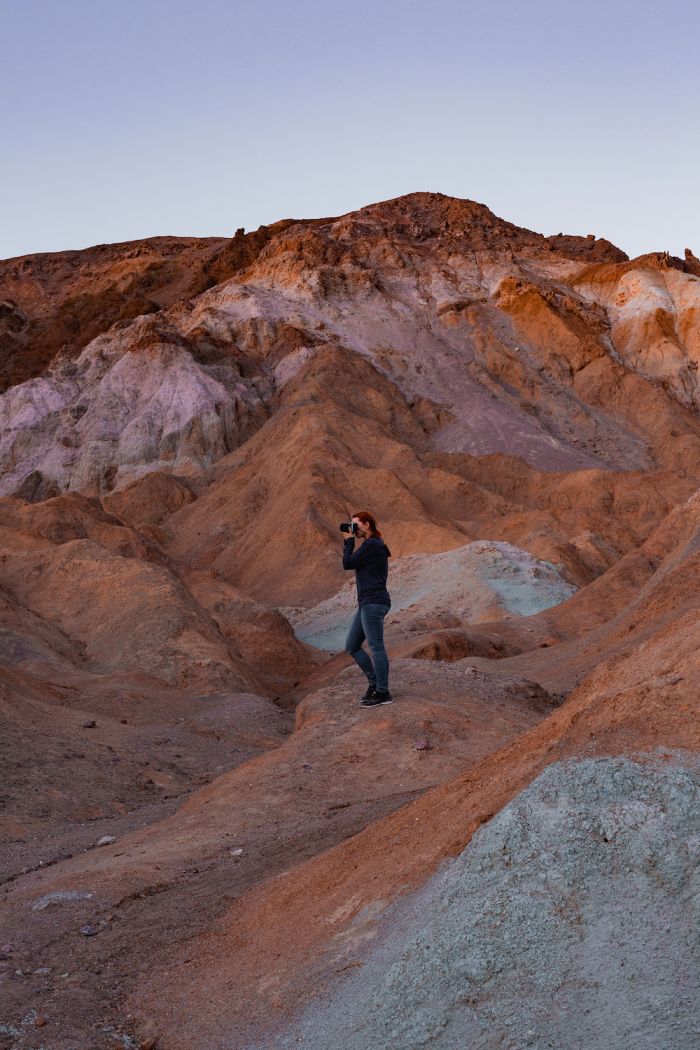
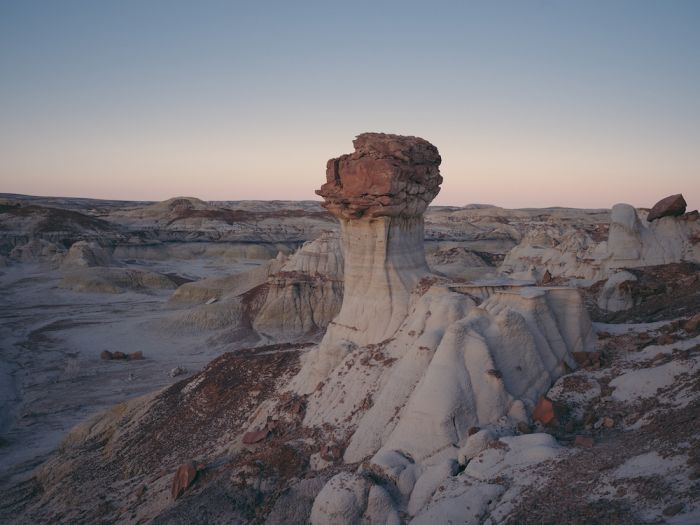
Chiara Zonca/New Mexico Badlands Hoodoo Rock Formation
Her recent photographic travels include the Atacama Desert in Chile, as well as Death Valley, California, Yellowstone National Park, in Wyoming, and the Bisti, New Mexico Badlands. Chiara’s wish to document landscapes and textural dimensions led her to these deserts of North and South America to explore, in her words, “barren, mystical, untinged territories.” We discussed these ideas in a recent interview.
JustLuxe: When you first started in photography, were natural landscapes your first passion? When did you come to truly appreciate the solitude of landscapes, especially deserts?
Chiara: I’ve always used photography as a therapeutic tool to correct what was wrong in my life. For a very long time I was living in a city, feeling trapped in a lifestyle I didn’t enjoy anymore. Photography and, in particular, landscape photography of nature was incredibly healing to me.
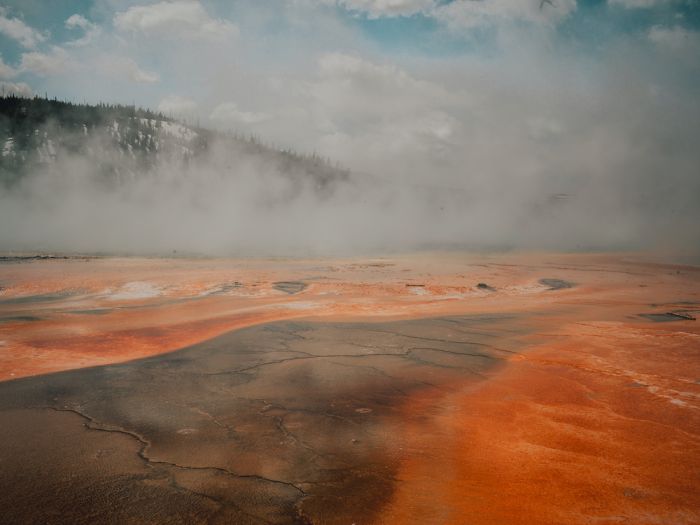
Chiara Zonca/Yellowstone Park, Wyoming
The appreciation for deserts arrived later on. Being born and bred in Europe, the abstract open spaces of the American West or of the Chilean Altiplano were so different from anything I had ever experienced. I was in awe with the surreal traits of these majestic landscapes and they woke an electric sense of belonging and desire for extreme solitude. All I wanted was to be part of those landscapes and project my feelings onto them. Documenting my personal perspective of connection with nature is what moves me to this day.
JustLuxe: Which is the most inspirational land area you have ever photographed, thus far? And, what defines that inspiration?
Chiara: I would say the American West. It’s just so diverse and I feel home when I am there like nowhere else in the world. My inspiration can be extremely unpredictable actually. It can be triggered by vast and beautiful landscapes initially, as well as by light conditions and general feelings a place evokes in me but that is just the first layer. I find that I really need time in an area to begin understanding what I am really inspired by and most importantly what I am trying to communicate. If I can get to know a location in the same way as a portrait photographer gets to know their subject, then I am in the best position to translate my original inspiration into a fully fleshed long-term project.
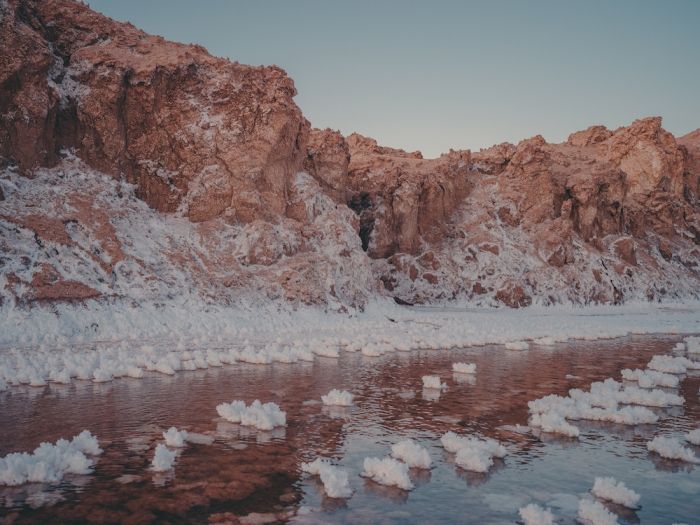
Chiara Zonca/Altiplano, Atacama Desert, Chile
JustLuxe: Which landscape, desert or mountain or ocean, are you most able to lose yourself in? Do you find yourself one with the landscape, or more separate from it as part of your creative process?
Chiara: I enjoy every aspect of nature, as long as I am able to feel alone. Perhaps my choice always goes towards landscapes that have an extreme aspect to them, the ones where humans wouldn’t survive just by being in nature without comforts. It gives me the kick to mentally project myself into that extreme situation which I find incredibly inspiring. I need to feel completely at one with the landscape, alone and at home at the same time.
JustLuxe: Also, regarding the deserts that you have photographed (especially the Atacama and Death Valley), what are your thoughts about how the past and present often live together in such places?
Chiara: That’s the thing. The beauty of these places is there is no past and present. That’s the impression I get from them, there is just one continuing, frozen in time, ancient and futuristic neverland. These rocks have been there since the beginning of time, our human interaction with them is so minimal that on their time scale we basically don’t even exist. That is of course if the human interaction stays minimal and we cherish and protect those places for future generations. If, on the other hand, we alter the landscape, whether it’s through bad behavior or by exploiting the land for profit and sell it to the highest bidder…well that’s a scar that will leave with the land forever.
JustLuxe: What are some surprising, unexpected images that you have encountered while shooting in nature?
Chiara: In Chile and other parts of South America, they have the custom of creating little altars for their deceased loved ones along the roads. They are called “animitas.” I noticed them while shooting my series Moon Kingdom in the Atacama and was very taken with the idea. I snapped a few of them and included them in my book, Desert Portraits. Loved the thoughtful nature of it and their delicate presence within the landscape.
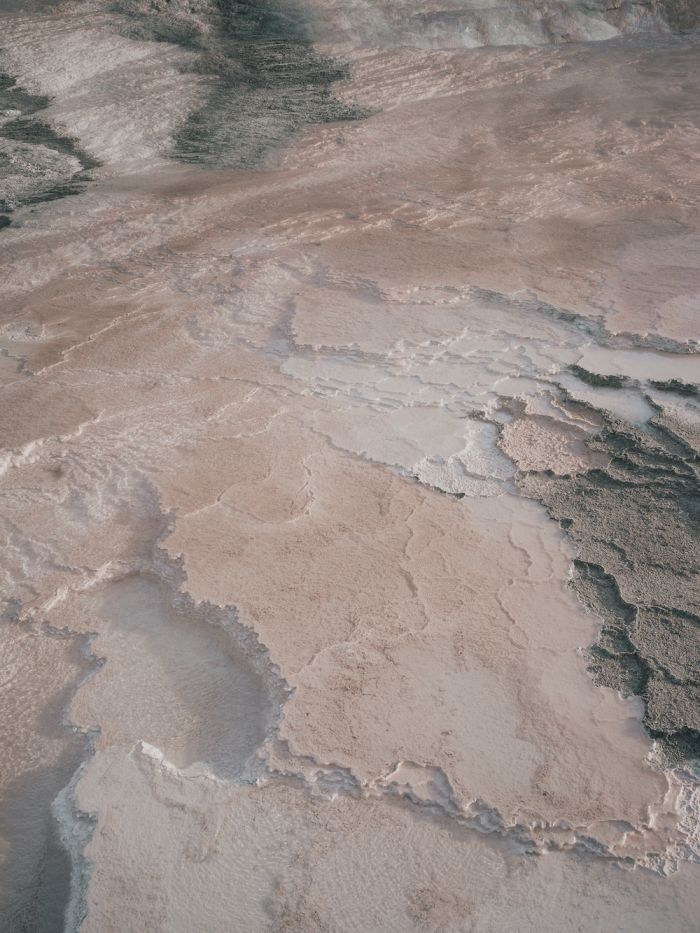
Chiara Zonca/Desert Floor, Death Valley, California
JustLuxe: In terms of your landscape subjects, what do you want people most to experience and remember viewing your images?
Chiara: I would love to welcome people into my world by creating a connection between my feelings and inner thoughts and the landscape. I don’t consider myself a landscape photographer, I don’t just document the landscape in an accurate representation: I “mold” it to match my specific vision of it. My ultimate goal is to get the viewer to see and experience my world instead of the real one and perhaps ask themselves questions about their own relationship with nature as a result.
Find online here - Find on INSTAGRAM
All images were shot on a Hasselblad X1D-50c.

